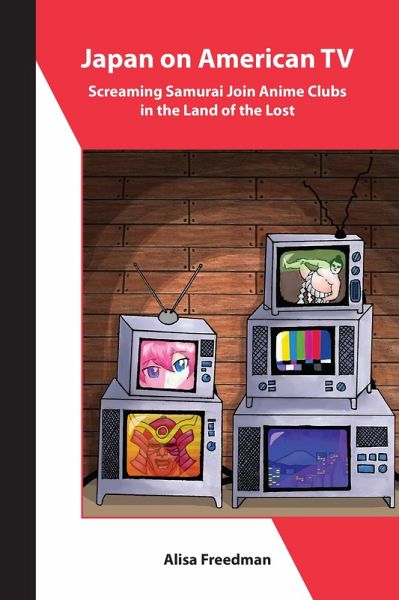
Japan on American TV (eBook, ePUB)
Screaming Samurai Join Anime Clubs in the Land of the Lost

PAYBACK Punkte
9 °P sammeln!
Japan on American TV explores political, economic, and cultural issues underlying depictions of Japan on U.S. television comedies and the programs they inspired. Since the 1950s, U.S. television programs have taken the role of "curators" of Japan, displaying and explaining selected aspects for viewers. Beliefs in U.S. hegemony over Japan underpin this curation process. Japan on American TV takes a historical perspective to understand the diversity of Japan parodies and examines six main categories of television portrayals representing different genres and comedic forms: (1) stereotypes of judo...
Japan on American TV explores political, economic, and cultural issues underlying depictions of Japan on U.S. television comedies and the programs they inspired. Since the 1950s, U.S. television programs have taken the role of "curators" of Japan, displaying and explaining selected aspects for viewers. Beliefs in U.S. hegemony over Japan underpin this curation process. Japan on American TV takes a historical perspective to understand the diversity of Japan parodies and examines six main categories of television portrayals representing different genres and comedic forms: (1) stereotypes of judo instructors (1950s and 1960s); (2) samurai parodies (prevalent in the 1970s); (3) the Bubble Economy Era in Sesame Street's Big Bird in Japan (1988); (4) "Cool Japan" parodies (1990s through the present); (5) eager fans in sketch series (2010s); and (6) makeover reality shows (2019). These examples show changing patterns of cultural globalization and perpetuate national stereotypes while verifying Japan's international influence. Television presents an alternative history of American fascinations with and fears of Japan.
Written in an accessible style that will appeal to scholars, teachers, students, and anyone with an interest in Japan and popular culture, as well as an ideal text for classroom use, Japan on American TV offers a gentle means to approach racism, cultural essentialism, cultural appropriation, and issues otherwise difficult to discuss and models new ways to apply knowledge of Asian Studies.
Written in an accessible style that will appeal to scholars, teachers, students, and anyone with an interest in Japan and popular culture, as well as an ideal text for classroom use, Japan on American TV offers a gentle means to approach racism, cultural essentialism, cultural appropriation, and issues otherwise difficult to discuss and models new ways to apply knowledge of Asian Studies.
Dieser Download kann aus rechtlichen Gründen nur mit Rechnungsadresse in A, D ausgeliefert werden.












